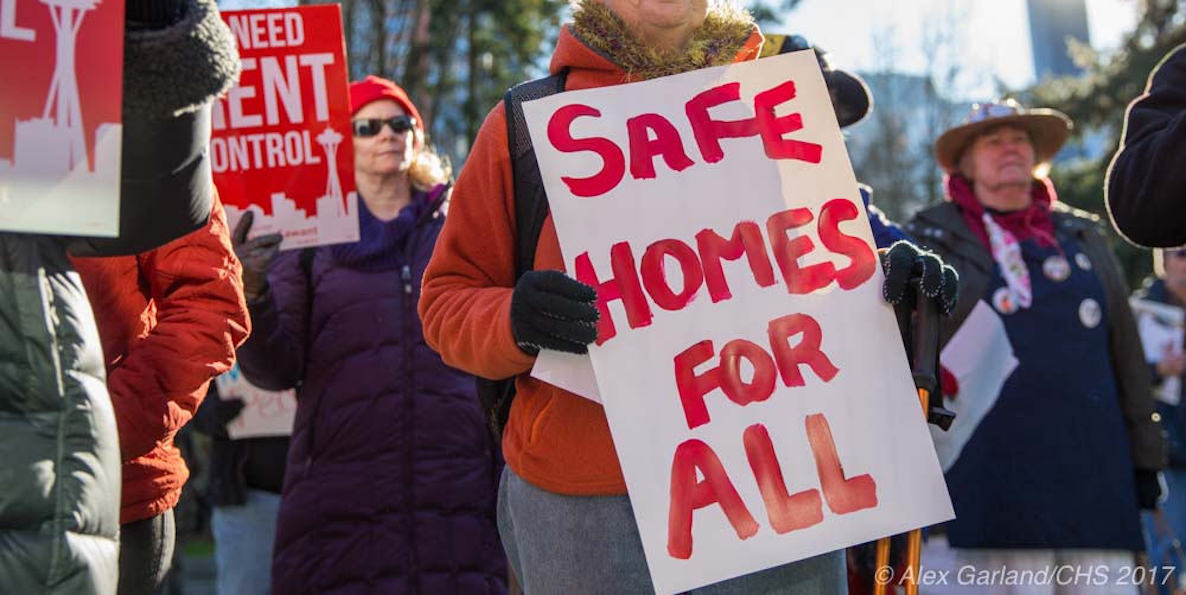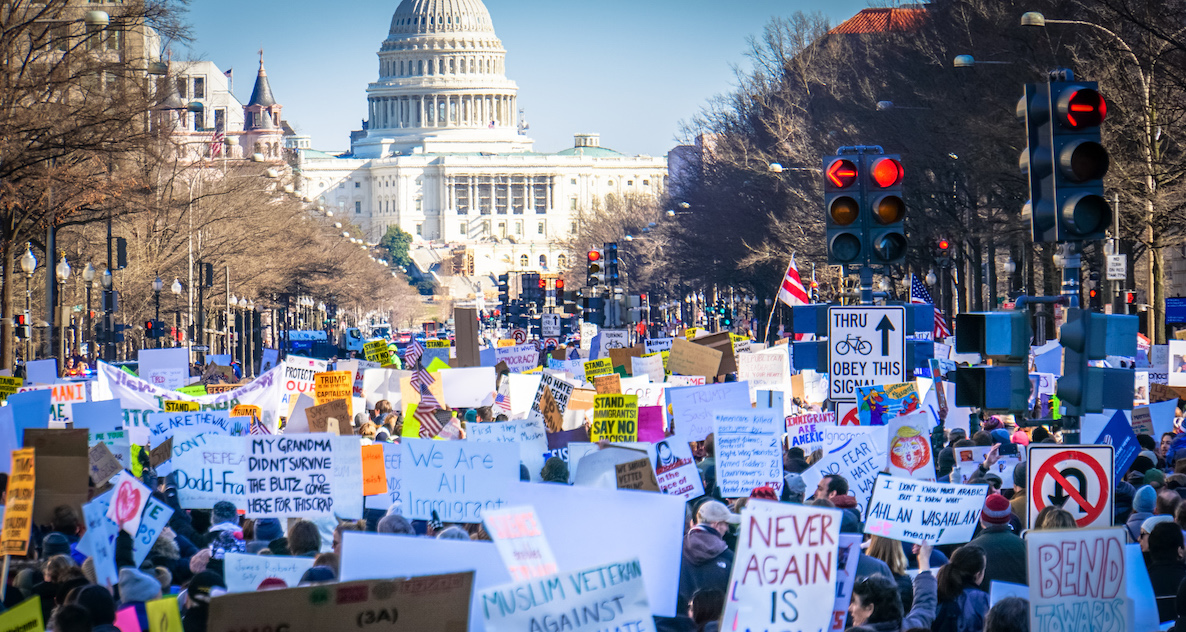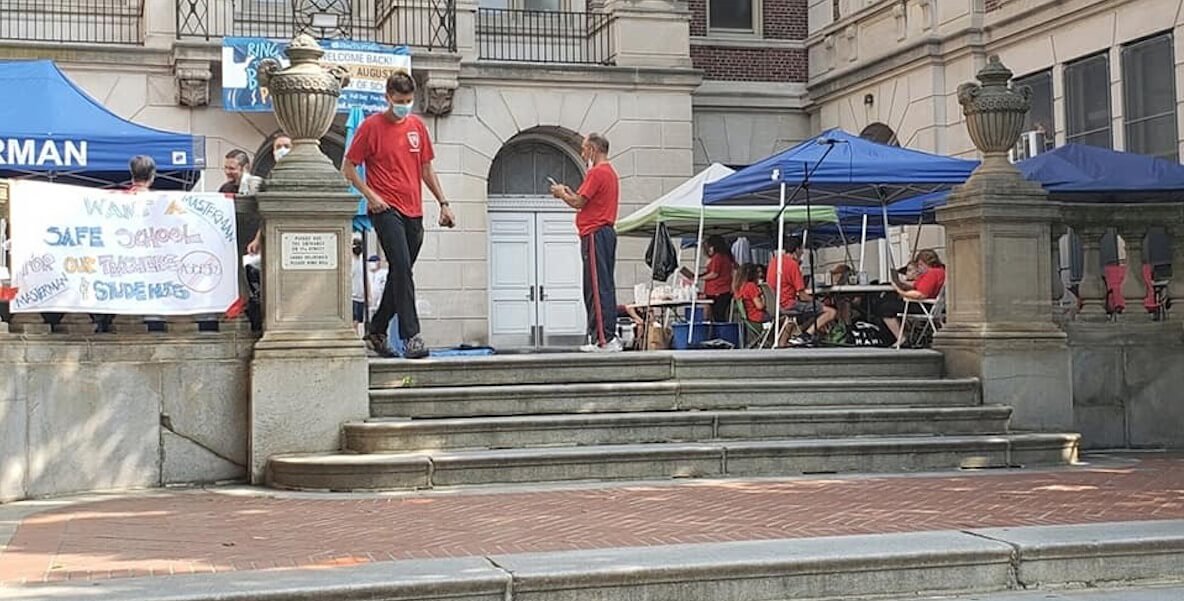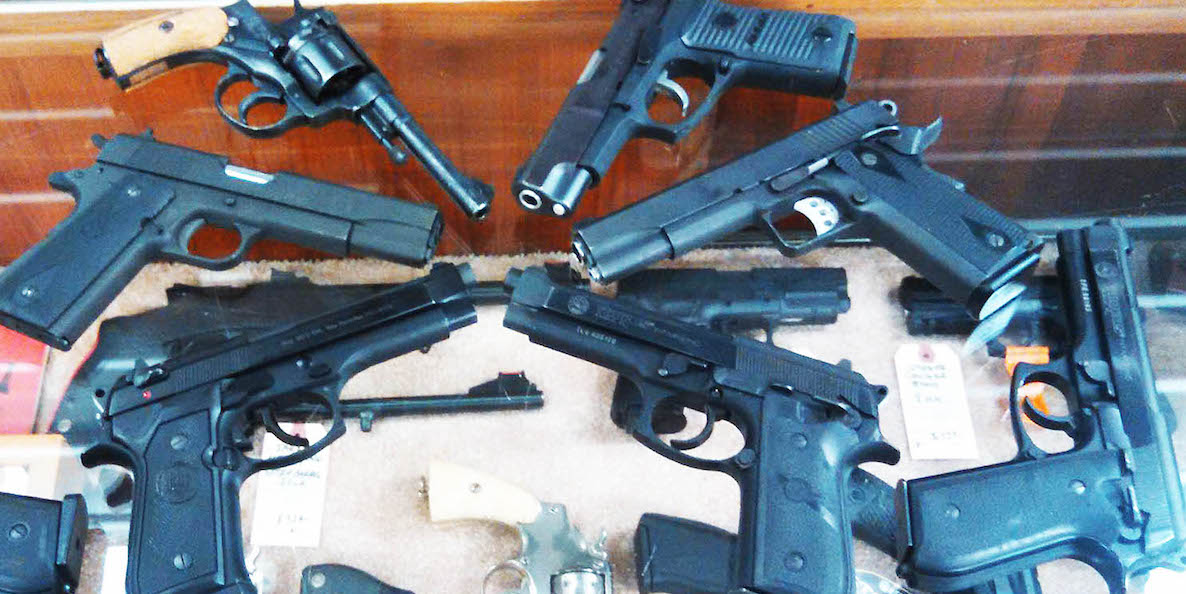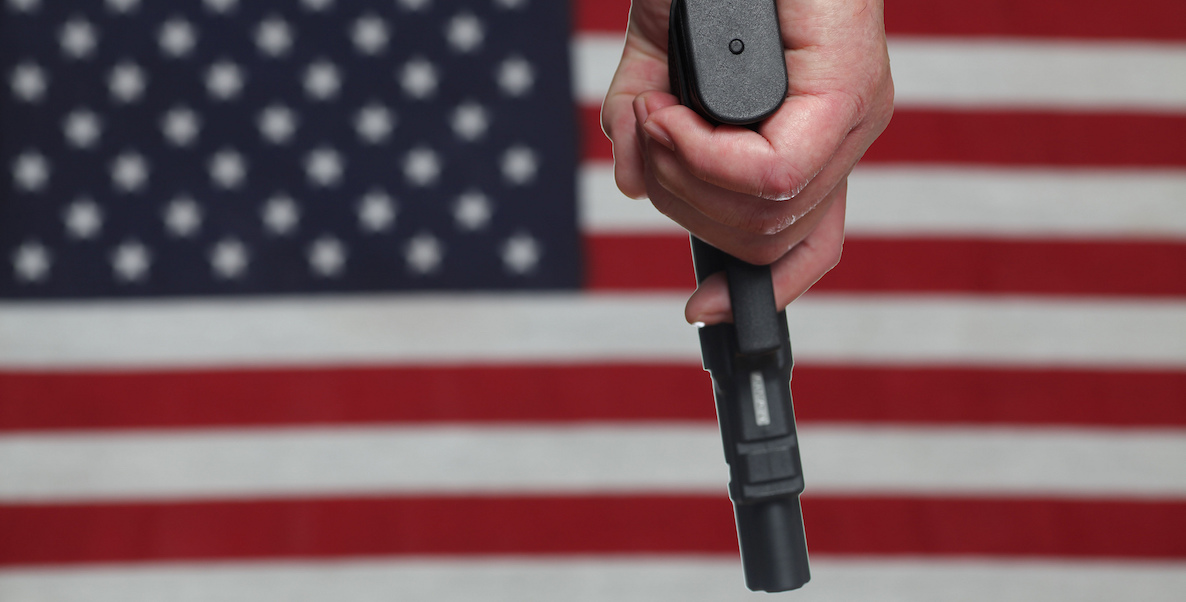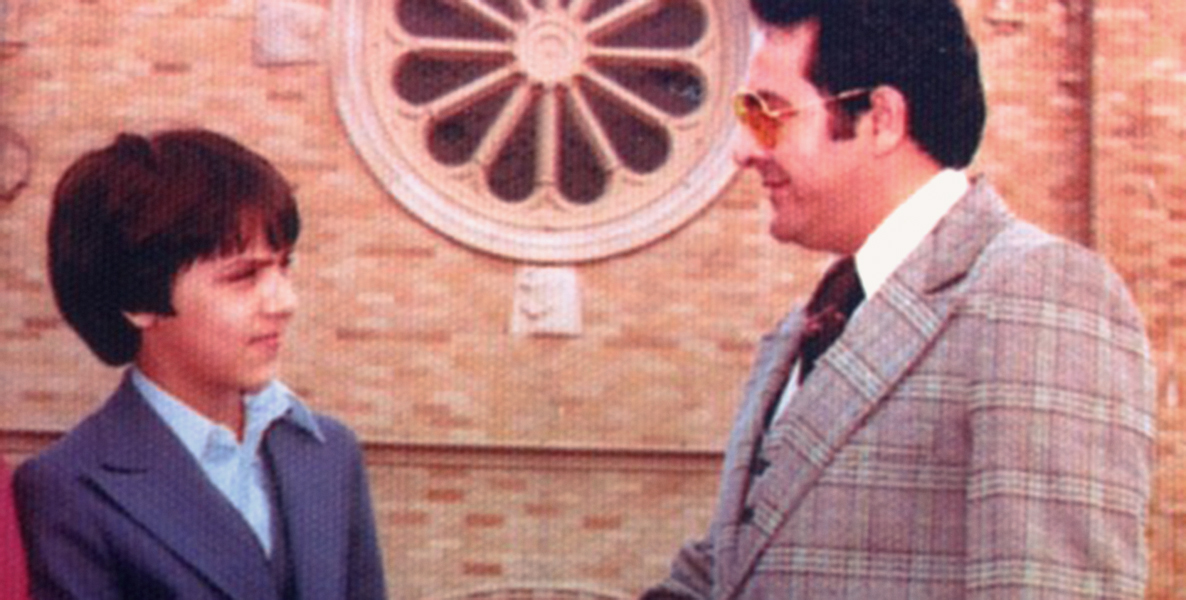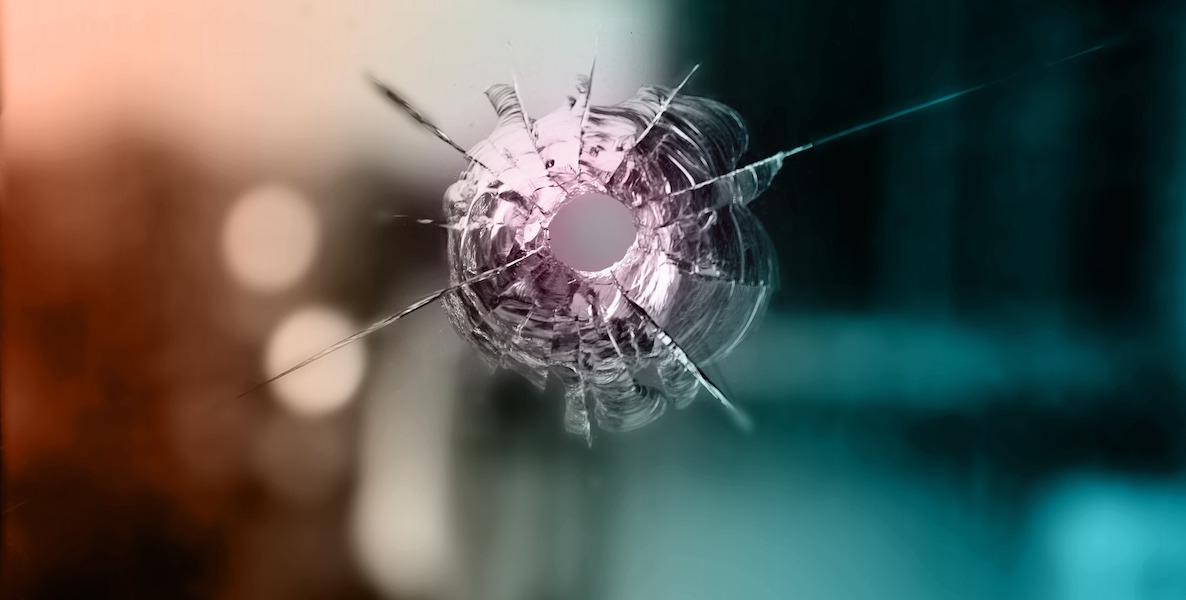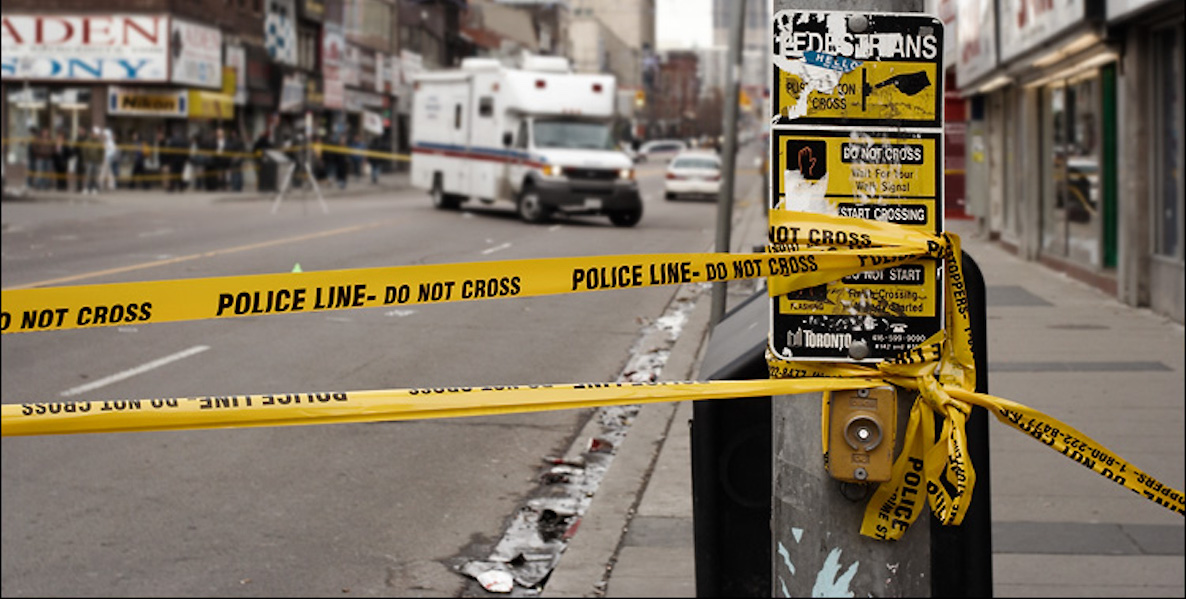Two days into the new year—after we learned Philly’s crisis-level homicide rate jumped 11 percent in 2018 from the previous year, and its aggravated gun assault rate spiked by 5 percent—City Council President Darrell Clarke barked out (mistakenly, as it turned out) a heated statement about bigots wearing Jay-Z blackface in the Mummers parade.
Not that racist indecency shouldn’t get an immediate and swift response from elected officials. It should. Yet, when there’s dead silence (no emotionally worded press releases or dramatic gatherings) from city leaders on a year of violence spinning out of control, where nearly 400 people died and more than 2,300 were injured by guns, it raises questions of sticks-and-stones priorities.
What gets under the skin of someone like the City Council President and what doesn’t? Lives in Philly destroyed, particularly those already in low-income distress? Or the best of our social sensibilities offended by a culturally deficient Mummers parade?
The conversation is largely muted, for a city this size and profile, on the topic of its rising violence. That is a problem. And it is a problem as bad as the record number of homicides this past year.
A Look At The Numbers
Philadelphia suffered a total of 351 violent homicides in 2018, in a city of 1.6 million people. To put that in perspective: The murder rate here was 17 percent higher than New York City’s 289 homicide victims, its Amtrak Corridor big cousin of 8.5 million. It was 20 percent higher than Houston’s official total of 279 victims, a place of 2.3 million that characterized that as “an uptick.” Los Angeles proper, a smoggy, water-parched and clumsily sprawling city of 4 million, saw 256 homicides in 2018, roughly 27 percent fewer murders than Philly. And Philadelphia had more homicides in 2018 than the entire Washington, D.C. metropolitan area (the District of Columbia, Northern Virginia and large parts of Maryland combined): 280 homicides for that region of 6.2 million residents.
![]()
Even Chicago, a place of 2.7 million, with its soul-grinding national reputation, experienced a drop in homicides (albeit a modest one) of 100 fewer killings, from 661 in 2017 to 560 in 2018—and at least Chicago’s police chief, along with its Mayor had a top of the new year press conference about it (unlike folks in Philly).
In Philly, there are no declines, just increases—and not good ones, either. That homicide total, according to Philadelphia Police Department data, is the highest since a high of 391 in 2007. Indeed, since 2014 (when there were 246 murders), we’ve seen a nearly 43 percent jump in homicides over the past several years—and an average 10 percent killing increase annually, save the hardly noticeable 1 percent dip in 2016.
These homicide rates don’t include aggravated assaults, or injuries, by gun, where firearm victims survive direct targeting or stray bullets. Yet, those can be just as severe, debilitating and destructively long-term on individuals, their families and the communities besieged by violence. In that, we find a 5 percent increase between 2017 and 2018—from 2,203 victims to 2,323—along with a disturbing 14 percent increase during November and December 2018, according to the PPD’s own statistics.
One Thing’s For Sure: City Hall Should Be Busier Than It Is
All signs point to a violent crime crisis in Philadelphia. Usage of the word crisis is not hyperbolic in this case. It’s a matter of civic responsibility and, more simply, fact.
This has a disproportionate impact of nauseating proportions on Philly’s black and most distressed communities—most especially on black men, who represent 80 percent of homicide victims. So much is this a crisis that the city’s black-owned talk radio station, WURD, built a dedicated #WURDonViolence project out of which specialized on-air programming and live events were created.
Too bad we can’t say the same for City Hall.
![]()
At this stage all we have is a citywide, multi-agency task force set to issue a report and set of recommendations within the next few days. But as Billy Penn concluded last September after examining a dozen special City Hall task forces on critical topics, these usually “ambiguous” efforts hardly work or get anything of real substance done. As writers Max Marin and Michaela Winberg noted: “No one even knows how many of these opaque boards even exist—the legislature does not keep a list of the temporary focus groups established by lawmakers.”
City Council could have, should have, been a bit busier on this issue over the holiday season. An emergency session, along with press conferencing announcements before and after, would have gone a long way towards showing the Philly citizenry that while it’s not a problem that can be easily fixed overnight, the magnitude of it is important enough to stall policymaker vacations. Such actions have the effect of spurring publics into action.
Even Chicago, a place of 2.7 million, with its soul-grinding national reputation, experienced a drop in homicides (albeit a modest one) of 100 fewer killings, from 661 in 2017 to 560 in 2018—and at least Chicago’s police chief, along with its Mayor had a top of the new year press conference about it (unlike folks in Philly).
Philadelphia’s city council, however, operates like its either part-time or a group of pontificating college professors who grade finals and go home. Still, they are the third-highest paid city legislators in the nation at an average salary nearing $133,000—which any busy politician should earn to ensure they’re focused on just that job alone. So, it’s concerning that New York City’s council (which just two years ago gave itself a raise from $112,500 to $148,000) can cut out for vacation only five days before Christmas and return for a hectic schedule of Committee meetings just seven days after New Year’s Eve—versus Philly, where council skipped out, despite a homicide crisis, twelve days before Christmas (pun inserted) and won’t be back until the end of this month.
Putting Those Numbers In Reverse
We get it. Philly, of course, is a city with countless issues requiring debate, planning, time and resources. We understand that prioritization of those issues by policymakers is challenging. In the context of lives needlessly lost, however, it’s clear gun violence should rank top of the list or, at least, much higher than where it is.
In the spirit of that, this Reality Check column and its foundation program on WURD will dedicate the next month towards a deeper-dive brainstorm session on how Philly could more immediately reduce its homicides. The current trend suggests it’s gone from bad to worse, in terms of the average increases… and with a fresh nationwide recession (aggravated by a leadership vacuum in Washington) just on the horizon, it could get even dicier.
![]()
So, what do we do about that other than feign stress and remorse at crime scenes or give emotionless, barely two-minute local news segments that don’t even name the victims? And what do we do about it before it spills over into a happily crowded and very white space like Center City and hurts people who don’t fit the typical profile of those who’ve been suffering all along, rather than black kids who few seem to care about?
Some conversation will explore low-hanging fruit, like the suggestion of a City Hall emergency session; others will look into how the city should recognize that the violence is a direct result of a citywide employment and labor force participation situation that hasn’t made any improvement, especially for Philly’s majority black population. And when city influentials cry they’re too broke or budgets are too strained to do anything about it (that includes the city’s bustling private sector) there are the analyses which will continue to show the money is, yes, there and the creative ideas are abundant: from re-opening shuttered libraries in poorer sections to game theorizing the housing affordability issue to truly cleaning up city neighborhoods and the local environment while planting more trees, urban farms and greenery.
There’s stuff we can do—but, are we doing it? If we are, how vigorously?
As we look to 2019, all the talk will be of Philly as a city on the rise, from higher cranes on the skyline to sports teams making playoffs by the skin of their teeth. But the conversation is largely muted, for a city this size and profile, on the topic of its rising violence. That is a problem. And it is a problem as bad as the record number of homicides this past year. It suggests a combination of general public malaise, mis-prioritization and little leadership to pivot that in a new direction.
Because, ultimately, you can’t have a city on the rise when it’s dying.
Charles D. Ellison is Executive Producer and Host of “Reality Check,” which airs Monday-Thursday, 4-7 p.m. on WURD Radio (96.1FM/900AM). Check out The Citizen’s weekly segment on his show every Tuesday at 6 p.m. Ellison is also Principal of B|E Strategy, catch him if you can @ellisonreport on Twitter.
Correction: An earlier version of this article failed to note that Council President Clarke’s accusation of a Mummer in “blackface” was a mistake. The Mummer he accused is, in fact, black.
Photo: Sam Javanrouh via Flickr


